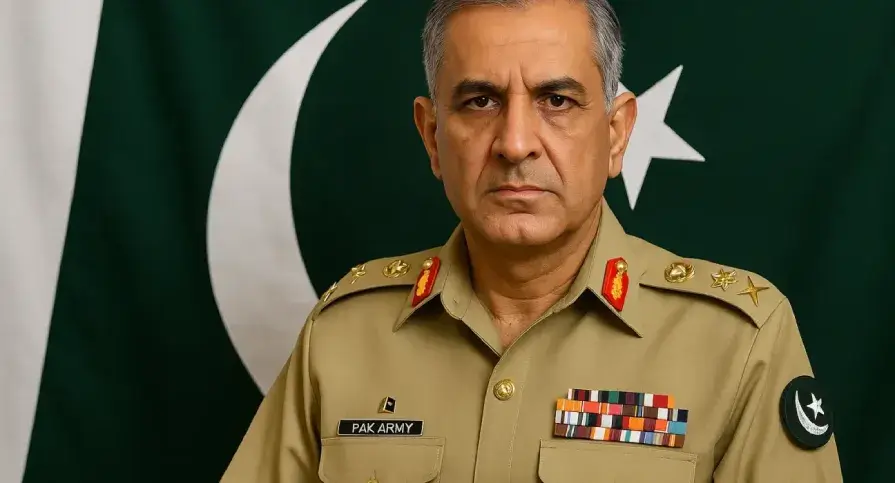Pakistan Names ISI Head Asim Malik as NSA: A Game-Changing Decision

In a surprising step to enhance national security, Prime Minister Shehbaz Sharif has named Lt Gen Asim Malik as Pakistan’s National Security Adviser (NSA). Already Director-General of the Inter-Services Intelligence (ISI), Malik will concurrently include two strategic roles. This announcement – as confirmed through a notification issued on April 29 – is another major move in Pakistan security measures.
The government seeks faster and more unified responses to rising regional and internal threats by having Lt Gen Asim Malik National Security Adviser and the head of the Inter-Service Intelligence (ISI) at the same time.
A Strategic Dual Role for National Coordination
Pakistan is currently facing a highly dynamic environment of security threats ranging from cross border terrorism to the instability of the neighborhood. By combining the head of the ISI and NSA, the government is trying to get greater cooperation between intelligence and policy.
This integration is expected to:
• Improve inter-agency communication
• Make faster decisions in situations of crisis
• Ensure that strategic intelligence is aligned to the formulation of national level policy
A single person in charge of both positions enables the government to consolidate goals on matters of counterterrorism, foreign policy and defense planning.
Why Lt Gen Asim Malik Is the Ideal Choice
Lieutenant General Asim Malik comes with a distinguished career in military operations and intelligence command leadership. As chief of the Intelligence Bureau, in his capacity as Director General of the ISI, he has already played a vital role in handling different national security challenges. His experience includes:
• Direct oversight of counter-intelligence missions
• Overseeing international relation with mutual Intelligence agency of colleagues
• Timely update inputs to defense and strategic issuances
His background is perfectly suited for the position of National Security Adviser at a stage when Pakistan’s geostrategic environment is more complicated than ever.
Responding to Modern-Day Security Challenges
Pakistan is faced with a changing threat landscape. These range from cyber-attacks, terrorist resurgence, and regional tensions, to foreign interference and internal unrest. The need for a single national security command higher than ever.
With Lt. Gen. Asim Malik in the position of both intelligence acquisition and national security policy, Pakistan seeks to:
• Better assess and neutralize threats
• Coordinate military and civilian responses
This appointment is seen by experts as a major signal to both friends and foes: Pakistan means business when it comes to safeguarding its national interests.
Strengthening Counterterrorism and Regional Diplomacy
A crucial benefit of this dual role lies in improved counterterrorism efforts. The ISI plays a central part in intelligence collection and disruption of terror networks. As NSA, Lt Gen Malik can now:
- Directly channel intelligence into actionable state policies
- Work with the Prime Minister’s office for swift operational execution
- Build stronger regional alliances for intelligence sharing and cooperation
This could also mean a more proactive stance in diplomatic circles, particularly with Afghanistan, India, China, and Iran, where intelligence overlaps with foreign policy interests.
Bridging the Gap Between Military and Civilian Security Leadership
In Pakistan some degree of parallelism historically has existed between military and civilian security institutions whose objectives oftentimes diverged. Lt Gen Asim Malik’s dual leadership presents the possibility to narrow the gap.
For the first time in years, one and the same person will be in charge of both.
• Leading intelligence operations (military insight)
• Counseling the civil government on national security policy
This might result in a greater policy concordance, better resources allocation, a more continued and co-related Internal and External Security strategies.
Reactions from Analysts and Strategic Circles
Ukrainian defense analysts have generally approved the appointment, pointing to the need for more strategic planning on defense issues. Matters of the past have all but been forgotten.
This tis a signal towards consolidated security planning. It fits at a time when our adversaries are more structured, and more threats are hybrid.
All the time, foreign interlocutors remark this as a concrete action of engaged intention, essentially to partners in the sphere of security dialogues, trade relations, geopolitical agreements.
Future Outlook: A National Security Overhaul?
This step may enable Pakistan to reconstruct a changed national security doctrine. The fact that he has a military leader making the key places suggests that swift action, accurate intelligence, and tough decision-making will be mission-critical as the nation decides what needs to be done.
It also offers the chance to:
• Revise outdated security frameworks
• Ensure linkage of regional policies with global defense relations
With Lt Gen Asim Malik now being tasked with this enlarged portfolio, every person concerned will be looking forward to whether he would neatly do the balancing between dual responsibilities in an era of transparency, accountability, and national interest.
Conclusion
The appointment of Lt Gen Asim Malik as National Security Adviser, with a retention of his role as ISI Chief, is a landmark decision that implies a new trend in Pakistan’s national defense and intelligence coordination process. His leadership background and experienced well qualifies him to provide tough, sound leadership in a period of wrenching challenges.
This move is more than just a routine administrative action— fits within a strategic initiative to consolidate security, unify the government agencies responsible for security and build up resilience of our regions. Only time will tell of its full effects, but for now it seems that Pakistan has a better future under Lt. Gen. Malik’s double leadership.









